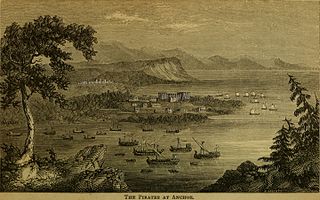Julius Caesar is a name that is sure to come to mind when one thinks about some of the most influential and famous rulers in ancient history. Indeed, Caesar’s character and the unique way he ruled his subjects make him stand out from others that came both before and after him. His actions were legendary: he conquered all of modern-day France, personally started one of the most significant civil wars of all time, and took over the entire Roman Republic by brute force, just to name a few. If it were up to him, he would have conquered all of Europe. The ability and willpower to take down one of the strongest Republics in ancient history on your own in order to become a sovereign dictator is something no ordinary man possesses. Julius Caesar was nothing near ordinary; he had gone through a life of struggle before he eventually rose to become one of the most famous rulers of all time. To state that Caesar’s life before his conquest of the Roman Republic was not easy is an understatement, especially when one considers the fact that, at the age of only 25, young Julius Caesar was captured by Cilician pirates.

In 75 B.C.E., Julius Caesar was traveling through the Aegean Sea headed for Rhodes when a band of Cilician pirates captured and held him for ransom.1 This sort of event was common in the early 1st century B.C.E., when the Mediterranean Sea was filled with crime, primarily due to pirates and smugglers. These pirates made a habit of targeting Roman vessels to kidnap and steal anything that they could. The constant threat from these pirates terrified Romans for years.2 The seas surrounding Greece were controlled by the pirates, as many crimes continued to be documented up to the end of the 1st century. The most famous offense was one conducted around 99 BCE, when the daughter of the orator Marcus Antonius was kidnapped, and held at a large ransom for her freedom.3
Julius Caesar was held prisoner in the Dodecanese islet of Pharmacusa. As the pirates held Julius Caesar captive, they put a ransom on him of 20 talents of silver. When Caesar found out about this, he knew that the pirates had no idea who they had just captured. Accordingly, he told the pirates to raise the ransom to 50 talents of silver.4 Of course, the pirates were quick to raise the ransom, but they were nevertheless shocked that their own hostage chose to have his own ransom raised. They began to realize that Caesar’s character set him apart from any of their previous captives. After the pirates raised his ransom, Caesar sent out some of his followers to collect the ransom and demanded they not return unless they had all of the money with them. While being held captive, Caesar did not act like an ordinary prisoner would. Caesar got very comfortable among the pirates by taking part in their games and helping out around the ship. After a while, Caesar even began bossing and ordering around the pirates. He would have the pirates listen to his speeches and if one of them didn’t like his speech or thought it was bad, Caesar would insult him.5 If Caesar wanted to sleep and the pirates were making too much noise, he would order them to be quiet. The pirates began to enjoy being around their young prisoner who clearly thought so much of himself, and they quickly started to respect him. They had no idea that Caesar was only being friendly with them as a result of his current predicament.
Caesar began to grow impatient and extremely insulted that he was being held captive by the pirates, and he ultimately informed them that, as soon as his ransom was paid and he was released, he would come back to kill and crucify all of them.6 Whenever the pirates heard this they would find it incredibly amusing, and they did not take it as a threat in the slightest. Caesar, however, was not joking, and nearly 38 days after he was initially kidnapped, his ransom was paid and he was still peacefully released. At this time, Caesar did not have any official power within the Roman Republic. Yet due to his incredible persuasion and personality, he was able to get a small fleet together to go searching for the pirates.7 Caesar knew that the pirates didn’t take his threat seriously, so he returned to the island of Pharmacusa where he had been held captive and found the pirates still camping there. Caesar and his fleet quickly captured nearly all of the pirates and took their belongings, including the money that they received from his ransom. Caesar took the captured pirates to the city of Pergamon and had them imprisoned. Caesar wanted the pirates executed, so he went and spoke to the governor of Asia, Junius. After a long discussion, Junius rejected the proposal, which infuriated Caesar. Instead, Junius wanted to sell the pirates and keep the money for himself.8 Caesar was determined to make the pirates pay for their actions, and returned to the prison in Pergamon where the pirates were being held to take matters into his own hands. He personally had every pirate crucified, just as he had promised when he was being held captive.9 However, Caesar decided to show them some mercy and slit the throats of every pirate so that they would not suffer as much.10

What sets Julius Caesar apart from many other historical rulers is his extreme determination and his crazed desire to get what he wants. He was determined to get back at those pirates, whom he had believed had disrespected him, and he defied the legal authorities in order to handle their punishment himself. Caesar was able to become a very successful ruler as a result of his ability to interact with others, to speak with conviction and meaning, and to persuade people to follow him. While most students of history think of Caesar defeating his opponents with pure force, this story depicts a different side to his personality. In this instance, Caesar used his charm to form a type of friendship or companionship with the pirates, so that he was able to act how he wanted while on the ship, enjoying more freedom than any other hostage had.11 When Caesar was released, he returned and punished the pirates with lethal force. Caesar viewed the pirates as weak and as people he could manipulate in order to get back at them for capturing and humiliating him.

All of the qualities that Julius Caesar possessed became great tools that helped him become one of the greatest and most memorable rulers in history. The same qualities, such as his pride and determination, that propelled him to greatness, however, were also the very instruments of his downfall. Before his assassination on that memorable day on March 44 BCE, Caesar did not want to be near the soothsayer who attempted to warn him to beware the Ides of March. Caesar ignored him because his arrogance was at an all-time high and he did not believe anything could happen to him. Julius Caesar’s character, desire, and determination are the things that have made him stand out in history and they will continue to do so. Further, all of these qualities were on display when he was faced with the “obstacle” of being kidnapped by pirates. For Caesar, his kidnapping was merely a slight inconvenience. For the pirates, however, it was their worst mistake.
- The Oxford Encyclopedia of Ancient Greece and Rome, 2010, s.v. “Julius Caesar,” by Michael Gagarin. ↵
- Encyclopedia Britannica, 2010, s.v. “The Time Julius Caesar Was Captured by Pirates,” by The Editors of Encyclopedia Britannica. ↵
- Josiah Osgood. “Caesar and the Pirates: or How to Make (and Break) an Ancient Life.” Greece & Rome, 57, no. 2 (2010): 327-328. ↵
- Encyclopedia Britannica, 2010, s.v. “The Time Julius Caesar Was Captured by Pirates,” by The Editors of Encyclopedia Britannica. ↵
- Philip Barlag, The Leadership Genius of Julius Caesar: Modern Lessons From the Man Who Built an Empire (Oakland: Berrett-Koehler, 2016), 12. ↵
- The Oxford Encyclopedia of Ancient Greece and Rome, 2010, s.v. “Julius Caesar,” by Michael Gagarin. ↵
- Encyclopedia Britannica, 2010, s.v. “The Time Julius Caesar Was Captured by Pirates,” by The Editors of Encyclopedia Britannica. ↵
- Josiah Osgood. “Caesar and the Pirates: or How to Make (and Break) an Ancient Life.” Greece & Rome, 57, no. 2 (2010): 319. ↵
- Allen M Ward. “Caesar and the Pirates.” Classical Philology 70, no. 4 (1975): 268. ↵
- Philip Barlag, The Leadership Genius of Julius Caesar: Modern Lessons From the Man Who Built an Empire (Oakland: Berrett-Koehler, 2016), 13. ↵
- Philip Barlag, The Leadership Genius of Julius Caesar: Modern Lessons From the Man Who Built an Empire (Oakland: Berrett-Koehler, 2016), 13. ↵



48 comments
Davis Nickle
This story has always been very amusing to me, the fact that these pirates had no clue who they were dealing with and took his threats as jokes is pretty funny. This story also shows how Caesar was a calculating and incredibly intelligent individual who knew exactly how to get what he wanted. If you ever need to show someone the sheer political and diplomatic competence of Caesar just direct them to this story.
Sara Guerrero
I find it amusing and intriguing how Cesar turned the tables on the pirates when he was captured and how easily it was for him to get comfortable with the pirates. The pirates totally didn’t take his threat seriously and I can’t believe the seriousness of Cesar and how he actually kept his word. I mean he ended up slitting their throats and they should have been worried about what would have happened.
Raul Colunga
Interesting read, everyone has heard of Julius Caesar, but I had never heard of this story before. I found it humorous that during the time he was captured he had ordered around the pirates who had captured him. He had quite a lot of charisma to bring a fleet without power and bring them to Pergamon and even went behind the governor’s back to keep his promise of killing the pirates.
Arsema Abera
There are so many tales and stories that have been heard about Julies Caesar over the years but the abduction of caesar by pirates was by far the most amusing story I have ever heard. His determination in getting what he wants and sticking by what he meant makes him very different, though his approach to revenge was kind of extreme this article was very descriptive in how Caesar handled the pirates, instead of being treated as a hostage Ceasar was a boss of the ship.
Lesley Martinez
It’s outrageous to read that Julius Caesar was abducted by pirates, considering who he turned out to be. The ability for Caesar to insult, demand and order tasks to those who held him hostage is out of the ordinary, especially because they began to respect him. Julius Caesar had a unique character, even after telling the pirates that he would return and kill them, the pirates remained calm. It is certain that his determination to get things done gave him the reputation he has today.
Sebastian Portilla
Julius Caesar played a gigantic role in the Roman Empire. Its crazy how I never heard of him getting abducted by pirates. Very well written article. It described the situation Caesar was in with the pirates and how comfortable he was, despite being threatened.
Cassandra Sanchez
I am surprised at how comfortable Caesar got with the pirates and how they did not treat him horribly. Caesar was very determined to get his revenge on the pirates which was only the beginning of the great leadership he would develop. I found his strategy of befriending the pirates unusual but very effective as he was preparing his plans for what was to come.
Amanda Quiroz
I have heard so many stories about Julius Caesar but I never heard a story where he was captured by pirates. Neat description on how comfortable Caesar was among the the pirates despite being held for ransom as a result of his situation. This caused the pirates to see a non-serious side of him. That is why they took his threats as a joke. Very interesting article!
Angelina Gonzalez
I remember learning about Julius Caesar in class and this was a great explanation of what kind of a person he was. The message he was most known for was, don’t mess with Caesar. You will most definitely regret disrespecting or going against him, as it was shown in the article. The pirates though they had become friends and have bonded, despite the fact that they were holding him hostage. However they were clearly mistaken.
Courtney Pena
I have never heard of a story like this before. Usually history from the BCE era does not interest me but I enjoyed reading this article. I thought that it was interesting how Caesar was friendly with the pirates and then started to boss and order the pirates around. Eventually, the pirates enjoyed having Caesar as a prisoner and then started to show him respect. Caesar was a great leader and this was probably why.